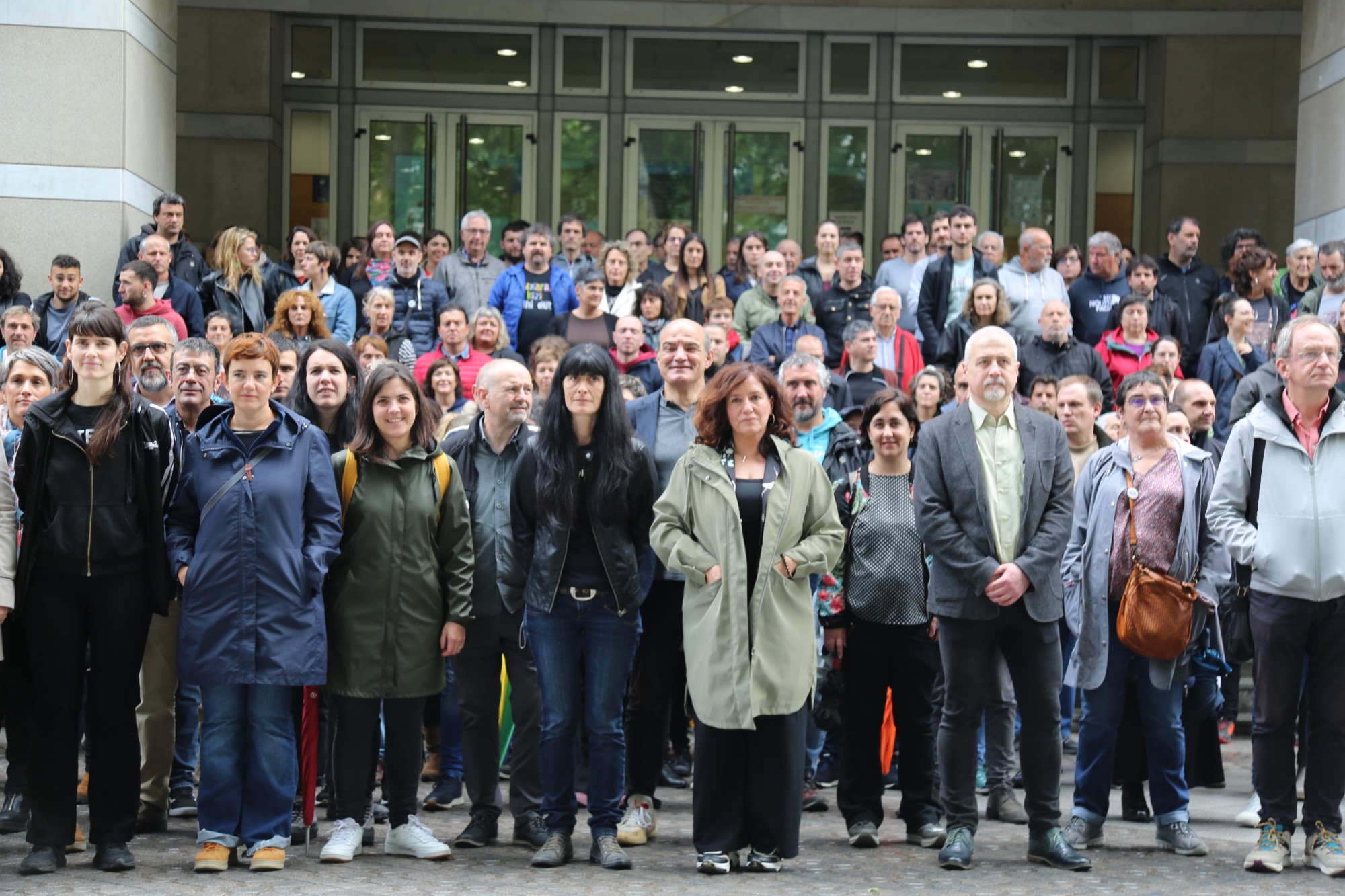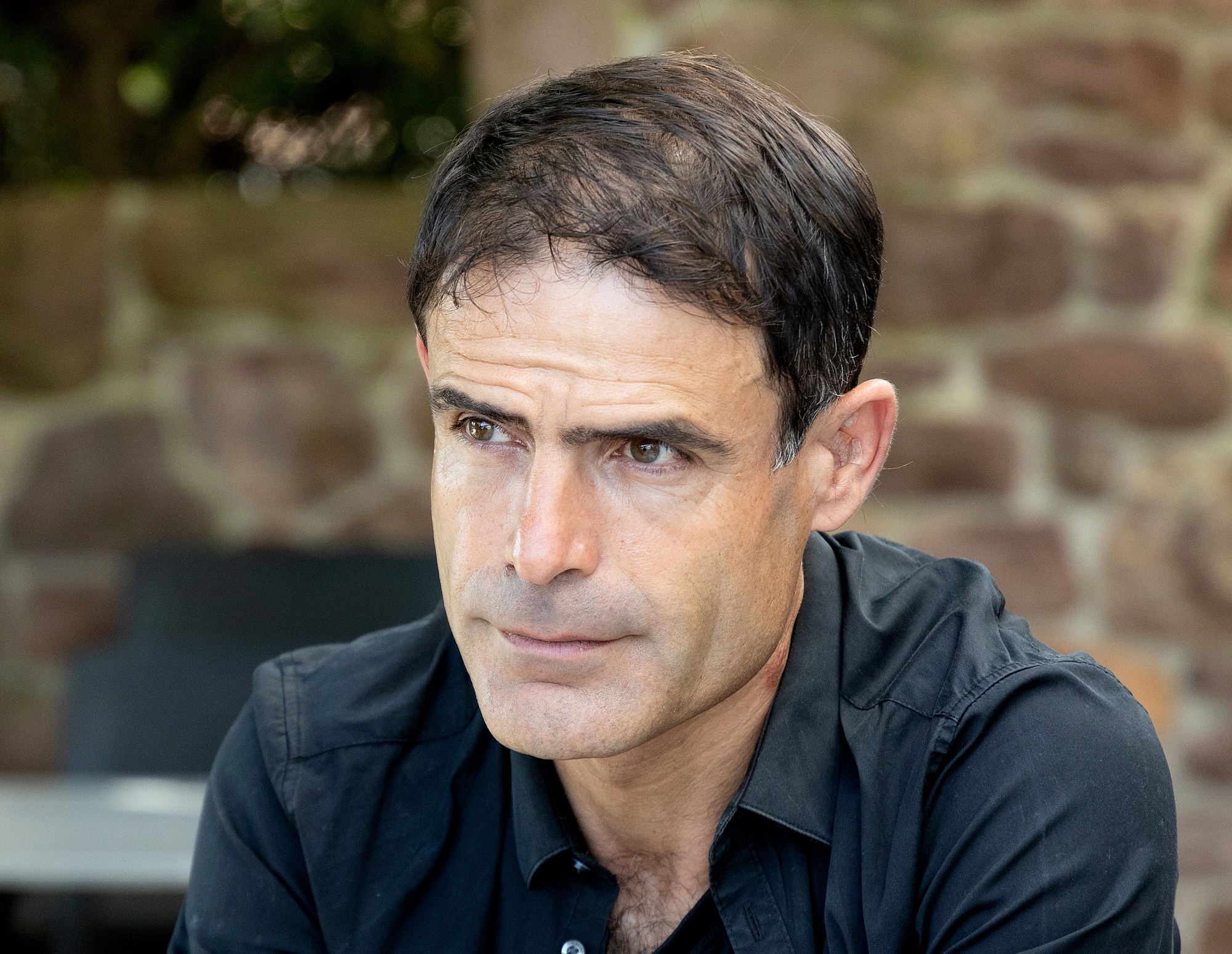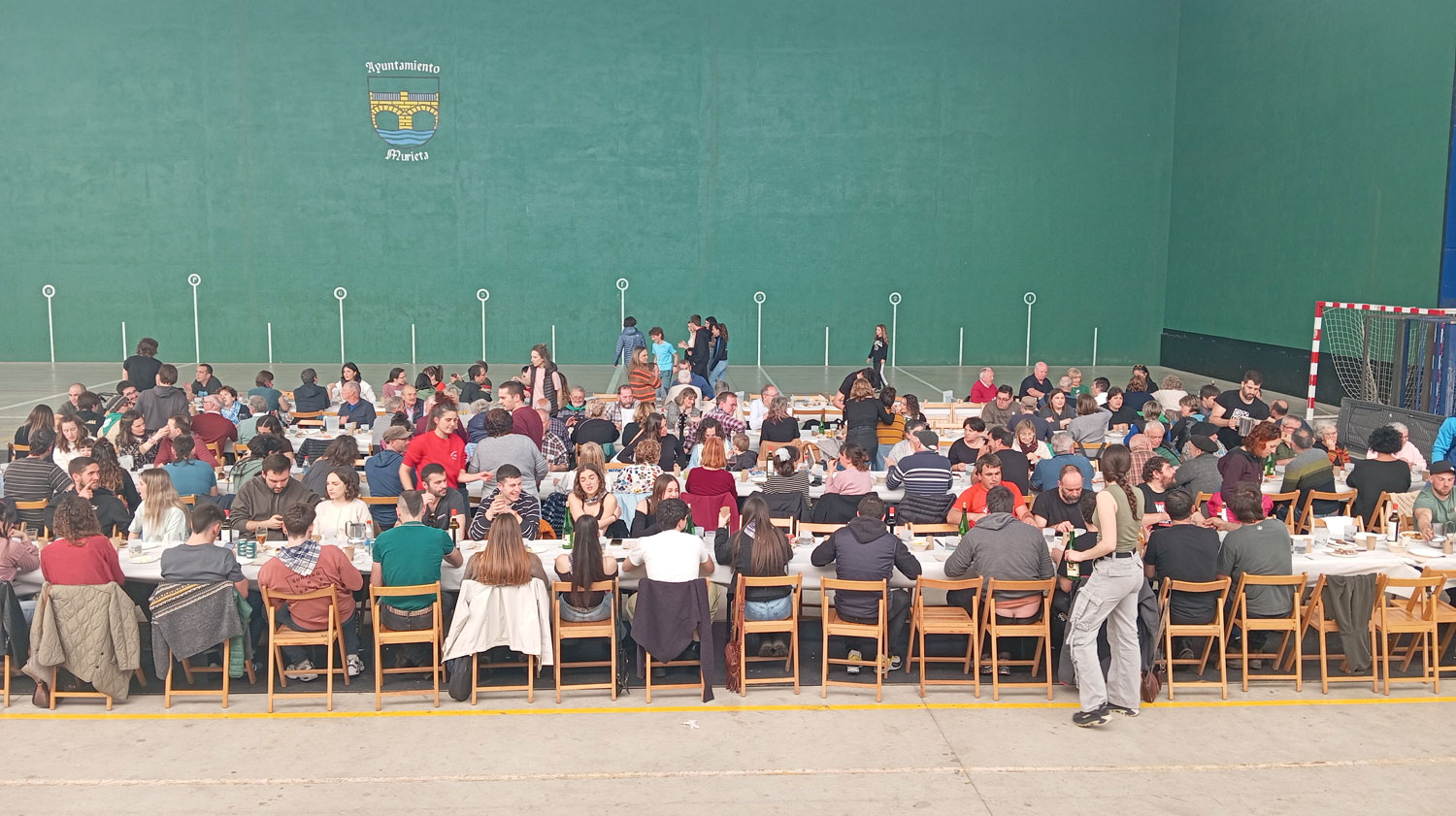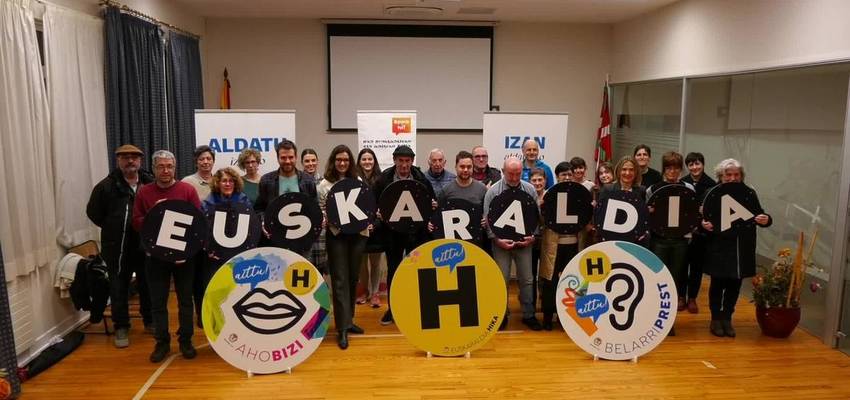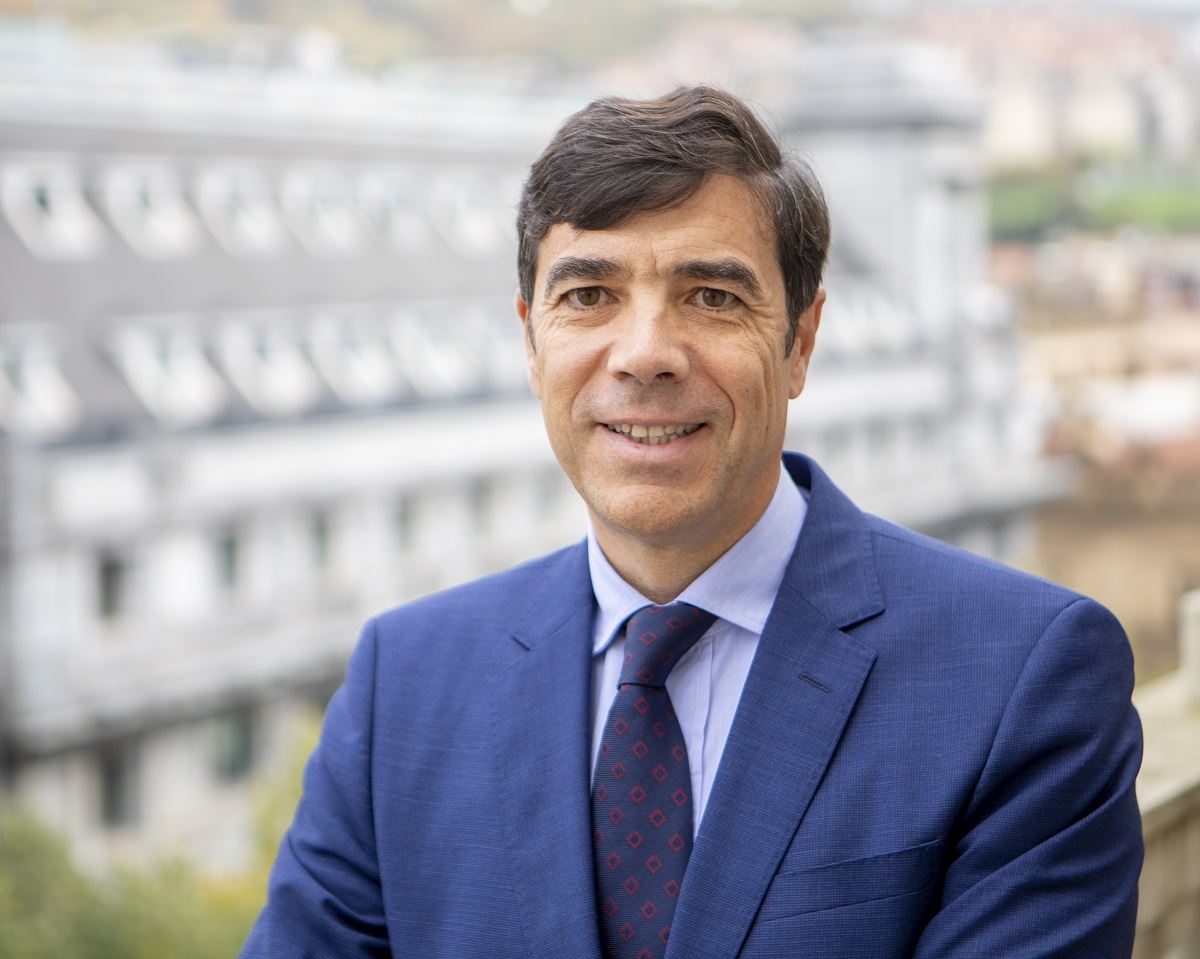The revolution of the 'real model' already has a new map.
- From Egia to Salvatierra, by Amikuze, is opening a new paradigm: I live in Euskera, you respond as you want and it is already. The new revolution begins with the continuation of the talks in Basque and Spanish in Basque. But to do so we must overcome the prejudices that prevent us from keeping the Basque language. I mean, look at the right map.
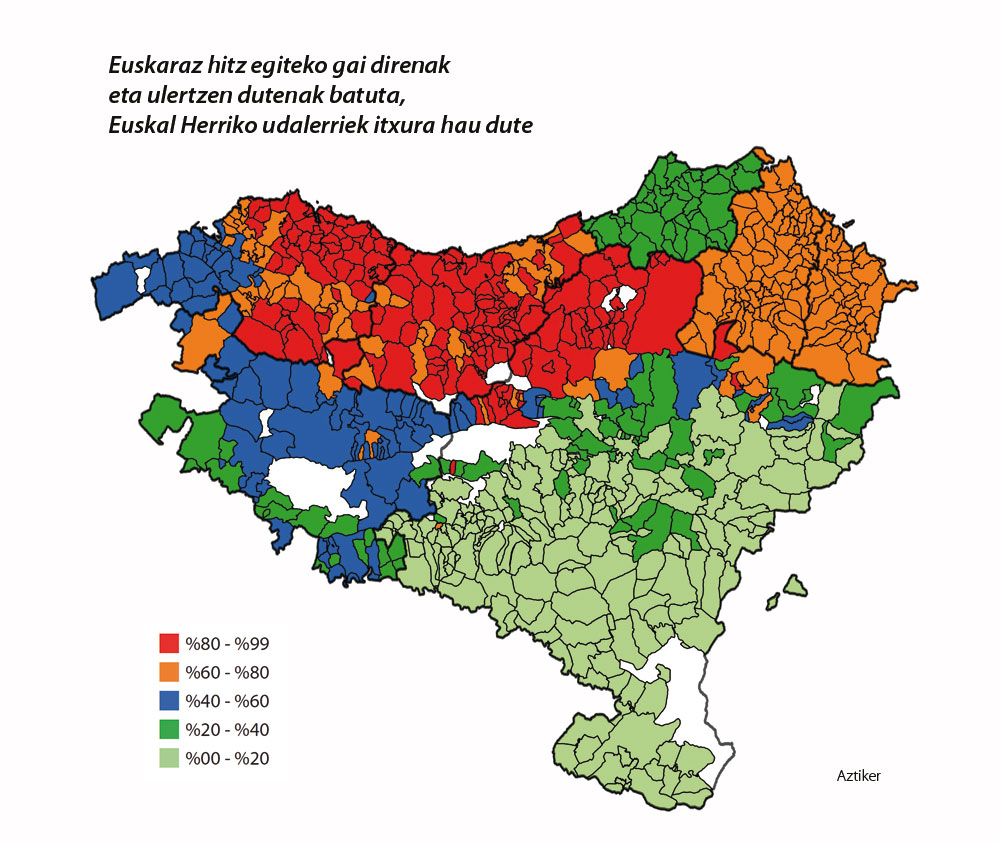
For me – this chronicle is going to be first person, because it is also a recognition – it was a discovery: that in Hernani I live 80% of the population understands Euskera. In other words, in Hernani industrial urbanized, where much more is heard than Spanish is desired, only 20% do not understand Euskera.
The Euskara Ari Du 2016 campaign, which has a fourth edition, has come in the same line as the operation “Euskaraz Bizi Nahi Dut” organized by Egia, such as that of Lasarte-Oria, Astigarraga, Agurain or Arrigorriaga, as explained by Onintza Irureta on the ARGIA pages.
It was proposed in hand sheets distributed to the Hernaniards: “Speak in Basque whenever you can. Can you live in Basque? Don't go to Spanish. If you understand it, do not ask [I] for it to be done in Spanish. [You] open your ears and try to understand them." At the beginning of the campaign we have trained a lot of people for a new sport never practiced and we have lived experiences as different as exciting.
I would say that the revolution is taking place in bilingual conversations with those who don't speak in Basque but understand. I would say that many who have decided to continue to carry the chapita “Euskara Ari Du” have felt it the same: “You’re still quiet in your house, I don’t ask you to change, I’ve decided to change it.”
With the press salesman, with the late Basque street who at the age of 60 does not speak Basque, but who stays in the street, with officials, merchants and retirees who perfectly understand the inn that drinks coffee... Who can't you talk to in Euskera if you only understand 20 percent in your village?
The “Nik 75” campaign of Salvatierra has rocked us then, “but these had the background… Living 75 hours in Salvatierra in Basque?” And yes, because in Salvatierra/Salvatierra/Agurain/Salvatierra the Basque language is understood… 55%! If in Hernani I did not expect to have as few as 20% of those who do not understand Euskera, in Salvatierra I would not be overlooked that 55% understand it, God knows what surprise I would find in Barakaldo… Undoubtedly, the tenant complex I was born in Aginaga has conditioned me so far, but also the fact of traveling from Euskal Herria with mismaps.
I've asked for help from a sociologist at the Aztiker cooperative, because I need new maps to travel around my country, and to start with, how many people are able to understand Euskera in our villages? This is how the letters that go with this chronicle are prepared.
Euskera changes color
Map 1, which is at the beginning of this chronicle, has become for me the main tool. The Euskera Date Base (EDB) of the Cluster of Sociolinguistics collects the most recent data: people able to speak in Euskera, who understood it in 2011 in the CAV, in 2001 in Navarra (updated in 2011 in the largest municipalities) and in 2011 in Iparralde by territories, as there is no information either municipal or regional here.
At each level of knowledge we have given the same color as the maps of the last pages of the book Lucha Linguistica en el País Vasco, published by Euskaltzaindia in 1979, to then make comparisons of easy look: in red 80-100%, in yellow -orange 60-80%, in blue -40% - 60%, in dark green -20% and in light green -0-20%.
To me, the eyes say, in short, that in Gipuzkoa, in almost all, more than 80% understand it, it is not a town or a city (Eibar, Irun, Donostia, Errenteria…) less than 60% understand it. Most of Bizkaia is also red or yellow, and to my surprise, Bilbao and the whole Left Margin is also blue, above 40%. Amazed Álava has left me almost all blue (40-60%), even some towns of La Rioja!
Despite the clear setback that Nafarroa Garaia has had in recent years with respect to Álava, I was surprised by the number of localities (Pamplona and surroundings, as well as Estella and Tafalla) in which the 20% line is exceeded. In Iparralde, in the whole of Zuberoa and Nafarroa Beherea, they still exceed 60%, and although we do not know how the most Castilian cities in the interior work (Maule, Donapaleu…) it does not seem exaggerated to think that they will also exceed 40%. The one from Lapurdi… is another barrel wine: Villages like Itsasu or Sara and Anglet-Biarrazio-Baiona cannot be equated, but walking between 20 and 40% of the average gives clues to anyone who wants to live in Euskera.
I'm sure you're going to make an excuse for this map. For example, how much does the citizen understand that he/she is “capable of understanding”? But, in general, taking the letter “Euskal Herria of the citizens of the Egia model” (in the version we have put on the Internet you can see the peoples in more detail), I have felt much more quiet to speak in Euskera anywhere, knowing the odds I have of hearing “not getting involved” in every place.
Despite the data that has been known about sociolinguistics for a long time, I still wonder how I haven't noticed before this situation. I would say that throughout my life I've had a wrong picture of reality. That has surprised me “the Basque Country of the citizens of the Egia model” because it is very far from the map I had in my head. If this is possible, if it was possible just yesterday ... What map have I been on so far? Which wrong map of Euskal Herria has conditioned the use of Castilian by those who tried to live as a consequent Euskaltzale?
In dialogue with the sociologist, testing other maps, it seemed to me that in my head the letter of the Basque Country understood by the Basque Country represented more or less what 15 years ago they were able to speak Basque in 1996.

See map 2... “Yes,” I have lived in the last few years, calculating without noticing, more or less, each place (Lekeitio, Barakaldo, Orexa, Aoiz…) how many could be my community, those who have spoken Basque more than those who speak learning in the schools, the militant Euskaldunberri extracted from the night schools… How dare I say in Bilbao?
Let us age and rejuvenate the Basque Country
But I've been shown another more clarifying and even hopeful map to try to live in Egiatar, graph 3 that goes here: Letter from young people under 35 who understand Basque.

Check the colors of the CAPV. Baskongads almost completely red! In view of graph 2, how do I ask or answer a young man from Bizkaia, Álava or Gipuzkoa in Spanish? Zuberoa and Nafarroa Beherea, despite the decline, still blue, Lapurdi himself and many towns of Nafarroa (20-40%)…
As for the Basque in 2017, the number of people who understand it will soon be known, the advancement of these years will be seen when the new statistics are published in March. At the moment, with data from 2001 and 2011, looking at the real image of Euskal Herria… what will happen if after the pioneers of Egia we follow a few hundred and then there are thousands of Euskaldunes who keep the Basque in our day to day?
Lost a long time ago the monolingual Basques that could weigh against the Castilian monolinguans, our parents died much more easily than in Spanish, more and more people work more easily in Spanish and many of their children, trained in the best D models, quickly pass to Spanish in everyday life.
Is it going too far to say that the Egiatarras can influence to recover a little the balance of the Basque Country that they attack on all sides, reinforcing a hard core that has been greatly weakened in the speakers? Or is that why it is almost the only way to change the activity of our Basque friends and friends of all political colours who want to condemn us to live in Spanish?
To acknowledge the truth, I am referring more to my interests than to the future of the Basque Country. I've realized that if I didn't change my behavior, I'll die like our elders who spend the last few years in Spanish out of respect for the Castilian speaking caregiver. And I'd like to live my last years very Euskaldunes. In Amikuze and Salvatierra I have been taught that I can get it.
We have had to endure another attack on our language by the Department of Education of the Government of Navarre; we have been forced to make an anti-Basque change in the PAI program. In recent years, by law, new Model D schools have had to introduce the PAI program and have had... [+]
"Ask for your turn and we'll join you," the willing and cheerful announcer who speaks from the studios tells the young correspondent who walks through the streets of Bilbao. The presenter immediately addressed the audience. "In the meantime, we are going to Pamplona..." They opened... [+]
Aberri Eguna elkarrekin ospatzeko xedez sortu zen Euskal Herria Batera plataforma. Aurten, ikusgarri bat eskainiko dute apirilaren 11n, Manex Fuchs antzerkilariaren, Lorea Agirre idazlearen eta Martxel Rodriguez dantzariaren eskutik.
Gozamen aparta bezain deskribatzeko zaila dakar, norbaiten hitzak irakurri edo entzun ostean, zera pentsatzeak: “Horixe zen neu aurreko hartan azaltzen saiatu nintzena!”. Idazlea eta itzultzailea da María Reimóndez, eta galegoz aritzen da, hizkuntza... [+]














